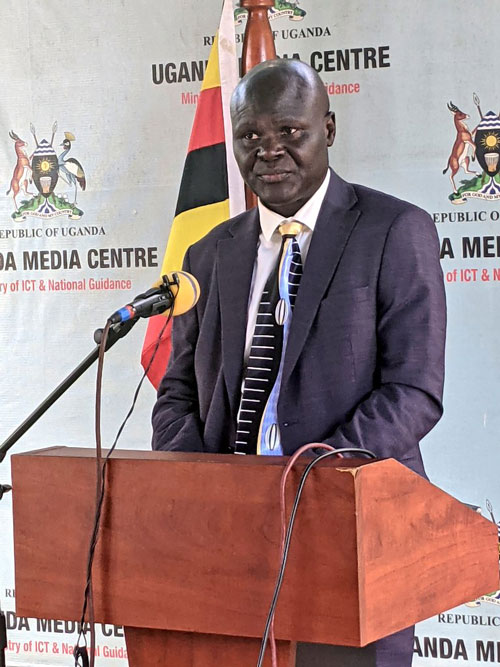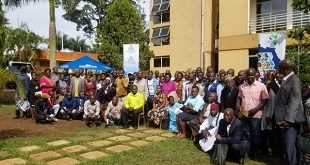
Kampala, Uganda | THE INDEPENDENT | The National Meteorological Authority-UNMA has explained that the rainy season is yet to end despite the current dry and hot weather conditions.
According to UNMA, people and organizations whose activities are influenced by rain should note the changes in the weather conditions and adjust accordingly.
This comes as the country has just undergone a short episode of heavy rainfall that resulted in floods, mud, and landslides as well as collapsing roads and bridges. This was followed by high temperatures and dry conditions, which have left farmers, especially in the central and western parts of the country staring at drying crops.
UNMA Chief Executive, Festus Luboyera says in their forecast, that western and central parts of Uganda will experience very low rains until mid-June when there will be an increase to moderate rains up to August.
He told the media in Kampala on Thursday that in the coming weeks, there could be el-nino weather conditions that are characterized by heavy and long downpours.
Luboyera however says that these regions are expected to get lower levels of rain than normal, while in the north and the east, the current rains will continue and post a better rainy season than in the rest of the country.
As is usually the case, the cattle corridor, which consists of parts of south, central, and northeast, will experience dryer conditions, according to the forecast.
The weatherman says by the end of June, water resources will start getting scarce, calling on farmers and responsible authorities to plan adequately for this scenario.
Luboyera advises livestock farmers to adopt food storage practices to cater to the dry seasons and scarcity of pastures. He calls on farmers to follow the forecasts provided by the authority but also keeps consulting technical people like extension workers so as to get maximum yield from their farming activities.
Previously, weather conditions were more predictable with farmers in most of Uganda aware of the start and end of each of the two rainy and two dry seasons, and able to plan accordingly.
Increasingly, this is changing with experts relating it to wider global warming and climate change, mainly arising from human industrial and agricultural activities.
Luboyera says the most contribution an ordinary Ugandan can do is to plant trees, especially in areas that have been deprived of their forest cover.
Abubaker Kalema, the Senior Weather Analyst at UNMA says it is now more important for farmers to rely on the authority’s forecasts and advisories since the seasons are no longer as predictable as they used to be.
****
URN
 The Independent Uganda: You get the Truth we Pay the Price
The Independent Uganda: You get the Truth we Pay the Price



